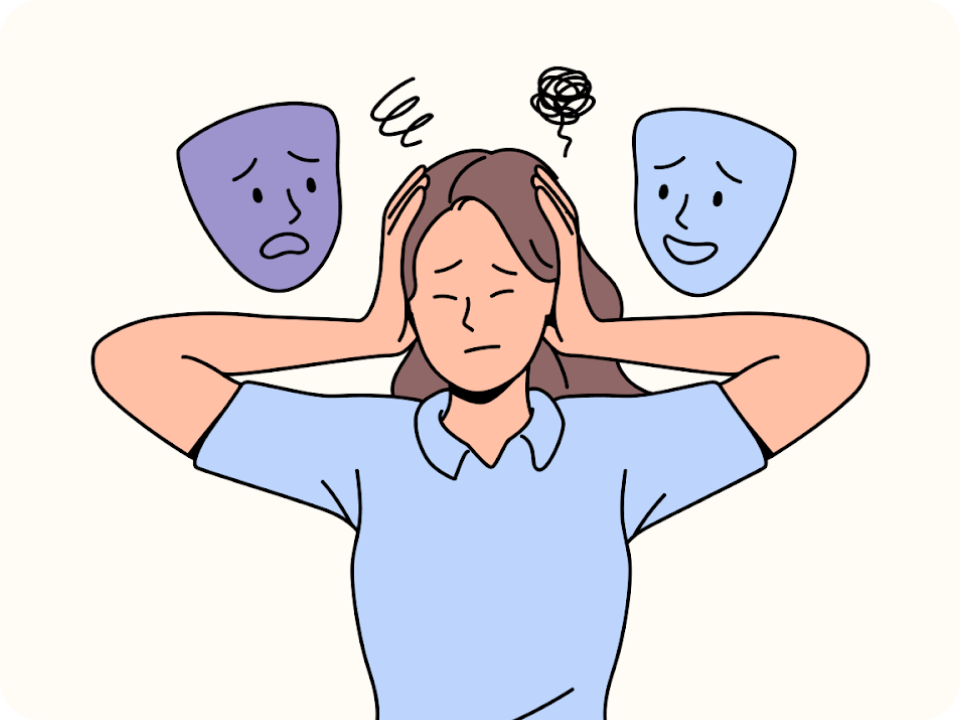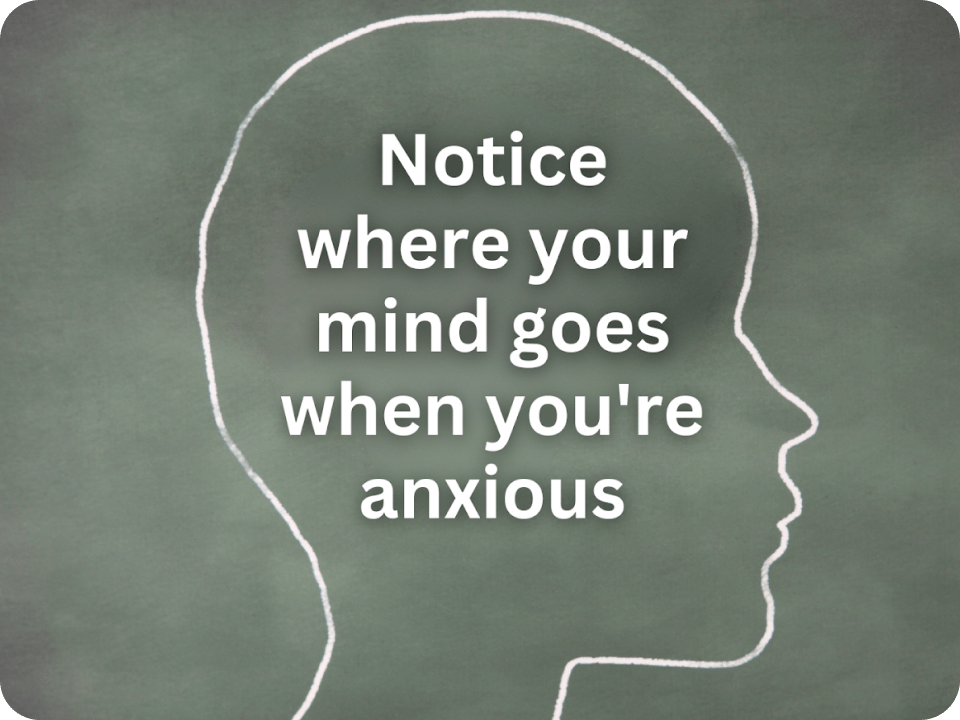Welcome to Wisdom & Sol! If you haven’t subscribed, join our community of 55,996 intelligent, curious folks who want to boost their emotional well-being by subscribing here.
The most dangerous lies are the ones we tell ourselves. One of the worst ones? The idea that anxiety just happens to us, like the weather or bad luck.
What if anxiety is something you're actively creating?
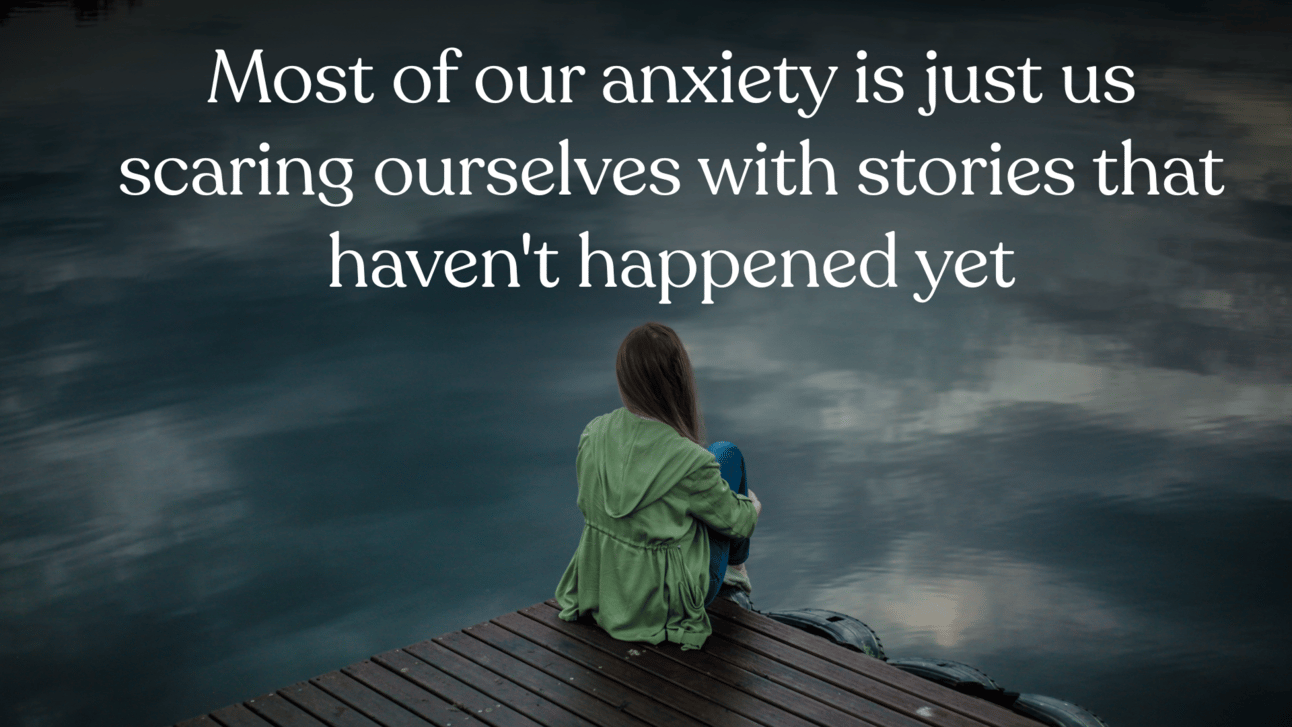
Studies show that cortisol levels during stressful periods are approximately nine times higher than they are during relaxed periods. Cortisol is a hormone that drives both stress and anxiety, meaning those two feelings aren’t cousins, they're twins wearing different clothes.
Did you know there is also a clear association between cortisol and increased activity in the amygdala—cortisol fuels the amygdala, your brain’s fear center, making anxiety and panic feel more intense.
And here's where things get darker: A cortisol spike doesn't just happen when something stressful occurs. It happens when you think something stressful might occur.
Your body is producing stress hormones in real-time based on mental movies that exist only in your head.
The ancient idea that modern psychology is just catching up to is that suffering stems from an inability to differentiate between what's really happening and the thoughts cooking in our heads about what could happen.
The Desire Machine That Never Stops
Here's a pattern to consider: You want something → The wanting creates tension → The tension creates stories about why you need this thing, what it will do for you, and what will happen if you don't get it → The stories create anxiety → The anxiety makes you want the original thing even more intensely.
And that’s not the end of it.
The more intensely you want something, the more anxious you become about not having it → The more anxious you become, the more convinced you are that getting it will solve everything.
But getting it is never satisfying—it just relocates your anxiety to something else.
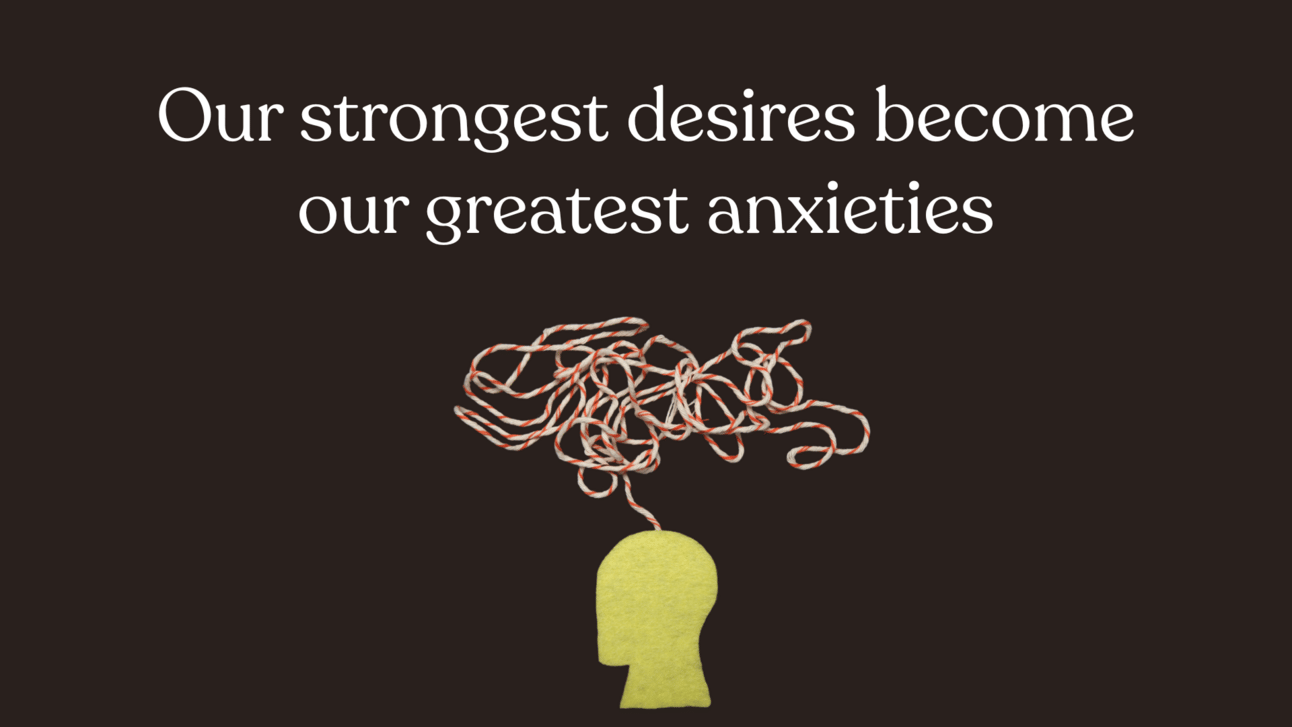
Let’s say you're single and it makes you anxious. Getting into a relationship won't fix you—it will just give your anxiety new material to work with. As a result, instead of being nervous about being alone, you become anxious about losing your partner.
You haven't solved the anxiety; you've just changed its address.
Cultivating Dispassion Can End Anxiety
Passion is the heat that comes from wanting and needing something badly. The opposite isn't about not wanting anything. It's cooling off the fever of needing.
It's the difference between being desperate for your crush to text you back (anxious, unable to concentrate, constantly checking your phone) versus genuinely liking them but being okay either way (calm, present, living your actual life).
Ancient wisdom refers to this as "dispassion," which is not the absence of feeling, but the absence of the feverish intensity that transforms normal emotions into stress and anxiety.
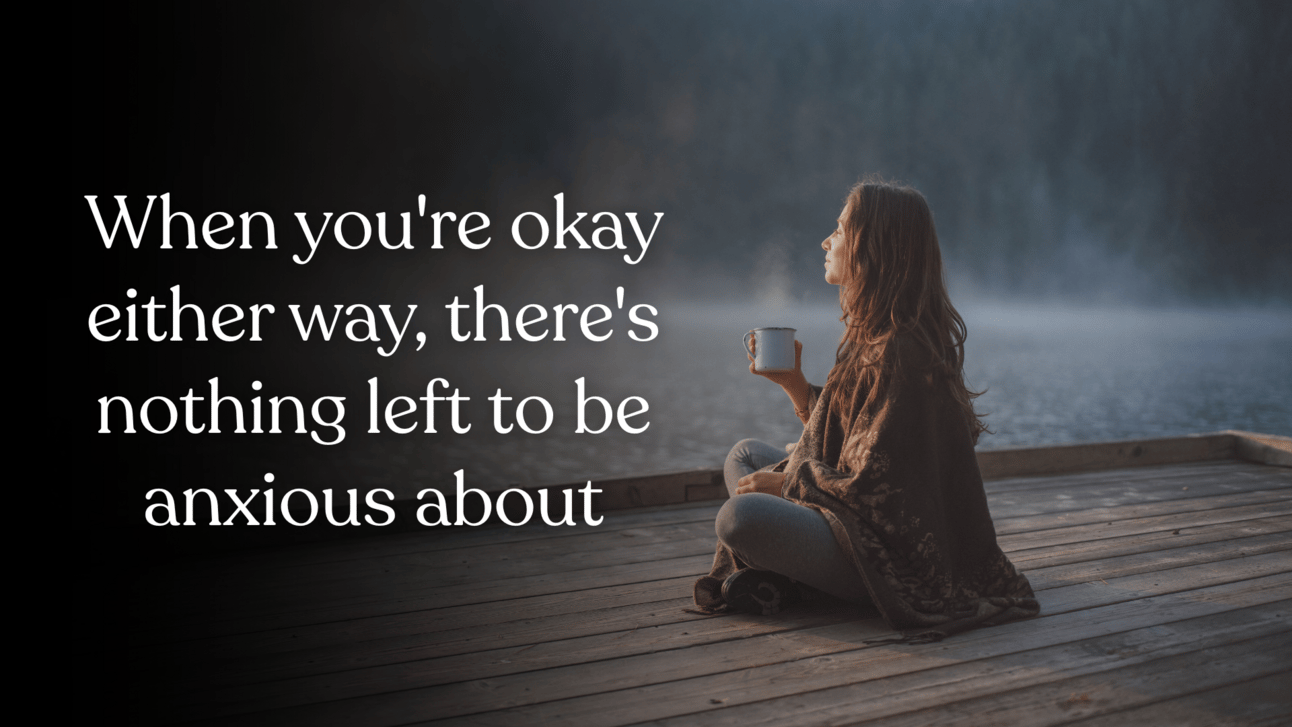
But There's Another Layer to This Cortisol Story
Remember that cortisol we talked about—the stress hormone that spikes whether you're facing real danger or imaginary threats? Well, your body has other ways of producing it that have nothing to do with your thoughts.
Research shows that sedentary behavior is associated with higher resting levels of cortisol, meaning a lifestyle that involves a lot of laying around can quietly trigger stress hormones even when nothing stressful is happening.
In simple words, sit all day and feel anxious all day. Your body doesn't care that you're just responding to emails. It experiences eight hours of physical stagnation as a threat and reacts accordingly.
Poor posture decreases testosterone levels and raises cortisol levels, creating a physiological foundation for anxiety before your mind even gets involved.
So you may have three anxiety accelerators running simultaneously: thoughts elevating cortisol levels from imaginary scenarios, passionate desires fueling anxiety, and a sedentary body producing stress from physical stagnation.
During a crisis like that, it’s unrealistic that you’ll find relief using coping mechanisms, regardless of how many breathing exercises you know in theory. Instead, when anxiety spikes, you’ll default to whatever you've burned into your nervous system through repetition, such as phone scrolling, frantic texting, or mental catastrophizing.
One way you can end anxiety by understanding your emotions better. At Sol TV, we help you understand and manage your emotions effectively. Click here to learn more.
Help us make this newsletter even better for you! Was this issue useful? What would you be excited to read about next? Reply to this email with your thoughts and suggestions. We read every response!
Want More: Tools to Manage Anxiety
This Edition’s Sponsor: 1440 Media
Fact-based news without bias awaits. Make 1440 your choice today.
Overwhelmed by biased news? Cut through the clutter and get straight facts with your daily 1440 digest. From politics to sports, join millions who start their day informed.
Along the Same Lines…
We love you,
Mona & The Sol TV Team ❤️
Lastly, some housekeeping…
If you can't find the newsletter, check your spam folder. If it’s there, mark it as “not spam.”
Whitelist our email. Add our email address [email protected] to your contacts listor your Primary inbox in Gmail.

